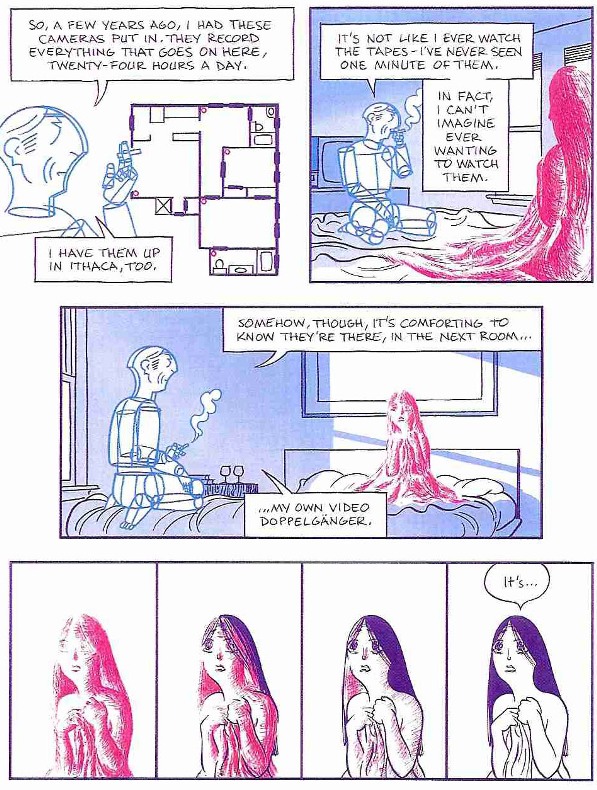Reading graphic novels has always been an interest of mine
that I have not had much time to really dive into, so I was very excited to
read Asterios Polyp by David
Mazzucchelli, and I was not left disappointed. Asterios Polyp’s storyline drew me into a new world that was both
foreign and familiar at the same time. I know very little about architecture
and fine art, but I still felt connected to the characters and could relate to
them on a level that went past outward qualities and resonated more on a level
of the human experience. I feel that the significance of the human experience
is something that is very prominently reflected in Mazzucchelli’s voice.
Overall, his writing had a lyrical, poetic quality. I feel
that this lent to his voice, as it seemed to reflect the interconnectedness of
the world that stitched the story together. This interconnectedness is weaved
throughout the story, with even the tiniest elements often playing more
significant roles at a later time, or an acquaintance, such as the man Asterios
met on the bus and gifted his father’s lighter to, returning in an unexpected
way (in this case, drunkenly punching Asterios in the face and getting him
hospitalized). In a way, this did more than simply show that the world connects
in various ways, but that nothing is ever straightforward, and a good deed
isn’t always returned. Just as the woman driving the car when Asterios pulled a
cat from the wheel hub just to see it run away would say - “That’s gratitude
for ‘ya”.
Mazzucchelli’s voice was not one of straightforward, factual
information like the though process of Asterios whom we was writing of. There was a constant reflection; continuous
nods to the past and the future and the malleable perception of the world and
reality. His voice was contemplative and wise in that it admitted that human
faults are a part of life and that change is possible, or in the very least
subject to compromise.
To me, the most characteristic element of his voice was his
emphasis on individual experience. Although Asterios was the focus of the
graphic novel, Mazzucchelli made if very clear just how important every human
interaction was, and how each and every moment of time is important in it’s own
way. I feel that this element was most clearly shown through visual aspects.
Often, Mazzuchelli would illustrate characters as reflections of differing
perceptions of reality. For example, Asterios would be drawn in a blocky,
straight, streamlined manner while Hana would be drawn in a softer, fuller, and
more complex crosshatching. These
artistic separations occurred most often at times when characters would
withdraw into themselves, usually in moments of tension or confrontation.
I feel that through this, Mazzucchelli is illustrating how
it is important to consider that what is reality to you is different from the
reality of another, as well as the concept of reality being the combination of
multiple perceptions. Thus, limiting oneself to their own perception will yield
no productive results. When opening up to the thoughts and ideas of each other,
such as after hearing his reasoning behind the cameras in his bedroom, Asterios
and Hana are able to once again visually return to normalcy.
Mazzucchelli’s voice is also full of satirical commentary
and metaphor – taking note of all of the contradictions of the world and the
less than optimal aspects of the human experience. These elements are often
represented is a combination of dialogue to visual symbolism, such as Hana’s
discussion of not wanting to force her cat to eat a vegetarian diet when it is
not natural, with a direct transition to Asterios’s father essentially being
force fed, or even subtle details like the “I still miss my ex but my aim is
improving” bumper sticker opposite a Christian symbol on the back of a car.
There are many more qualities of Mazzucchelli’s voice that
could be discussed from both a visual and content standpoint. Everything from
the shapes of the speech bubbles to the changing drawing styles to minute
contradictory details and reoccurring elements all seemed to play a role in
conveying his take on the world as we know it. Ultimately, his voice reflects that the world is a malleable, changing place, the collective work of countless changing perceptions and minute yet incredibly important actions.






No comments:
Post a Comment